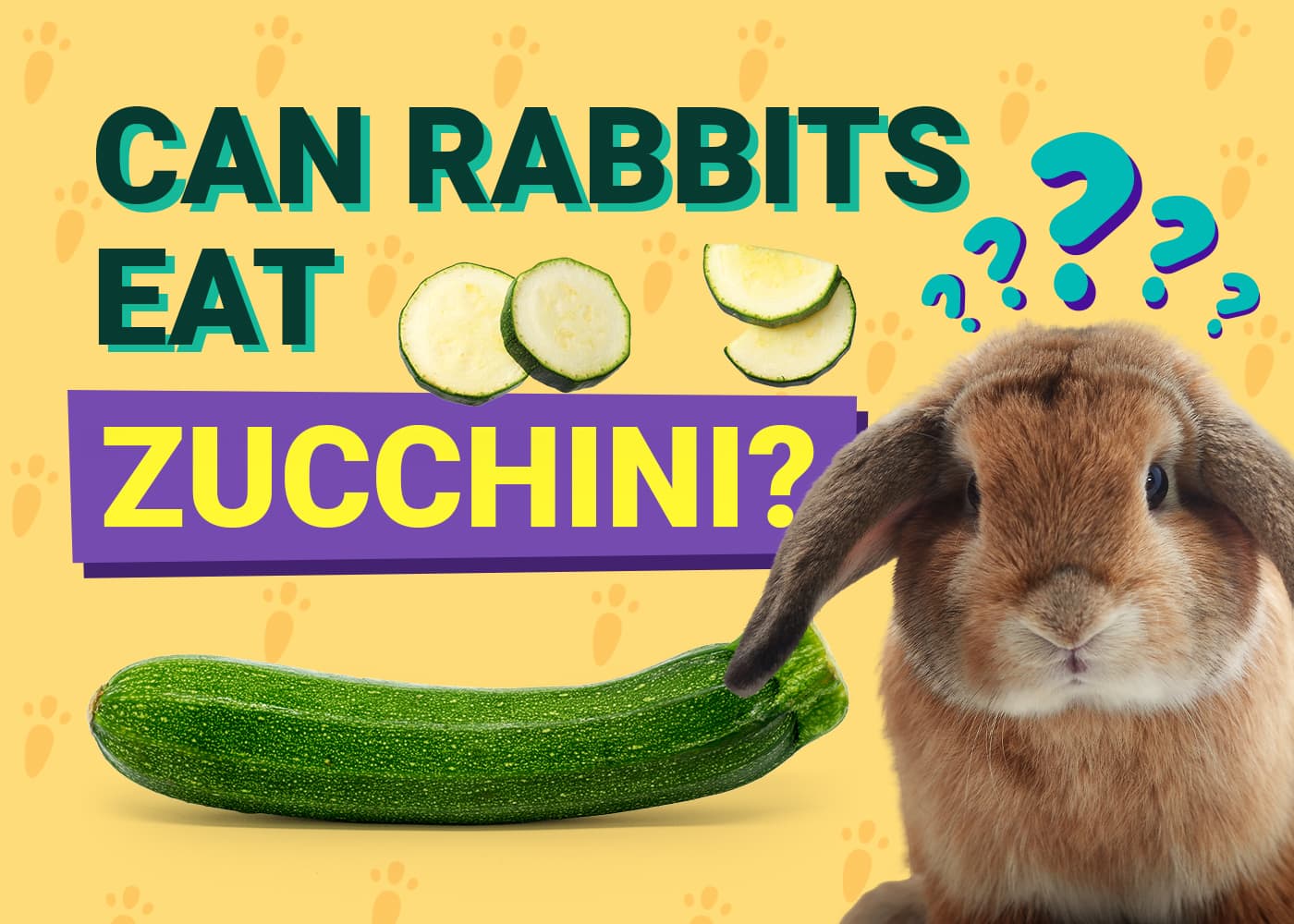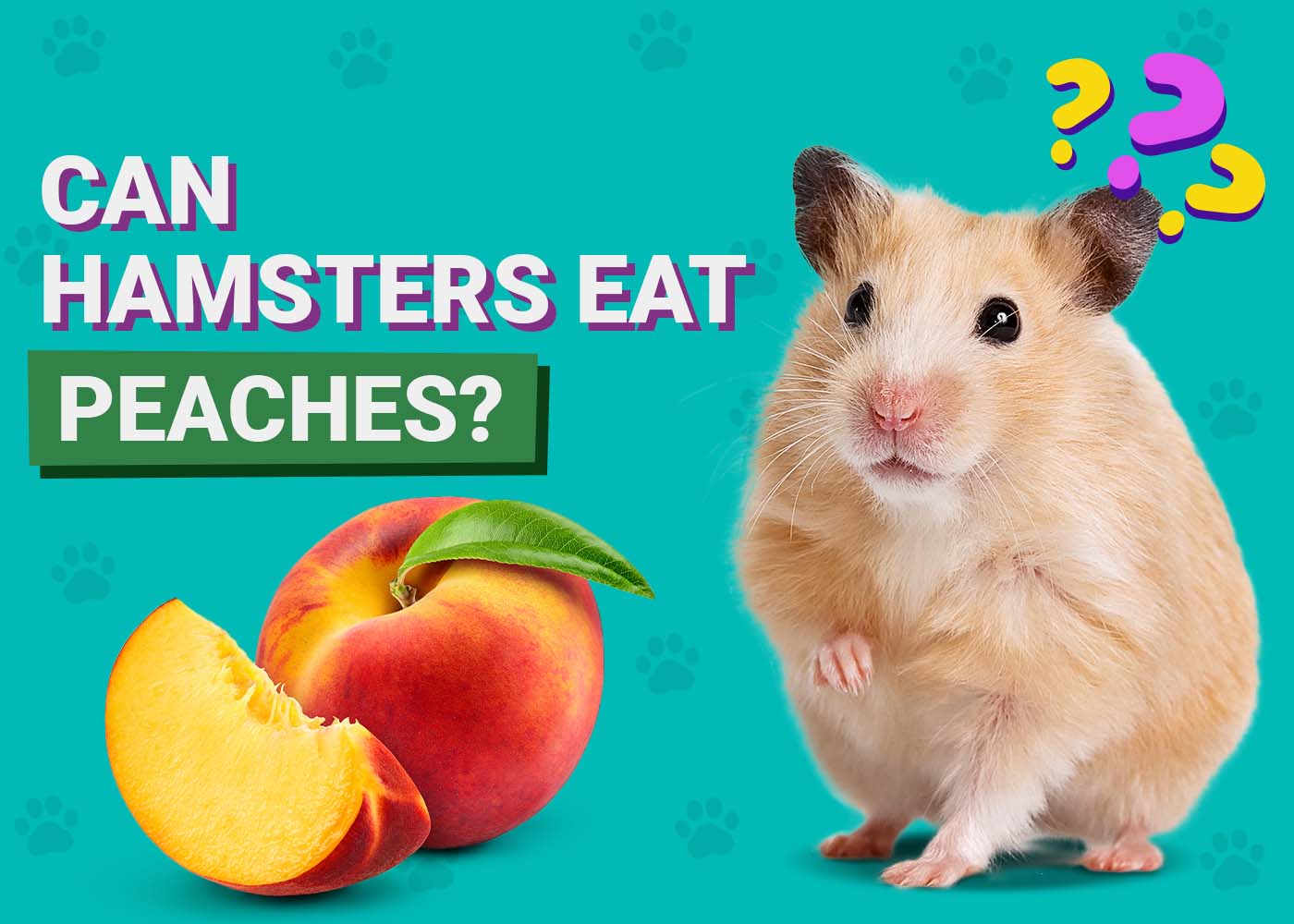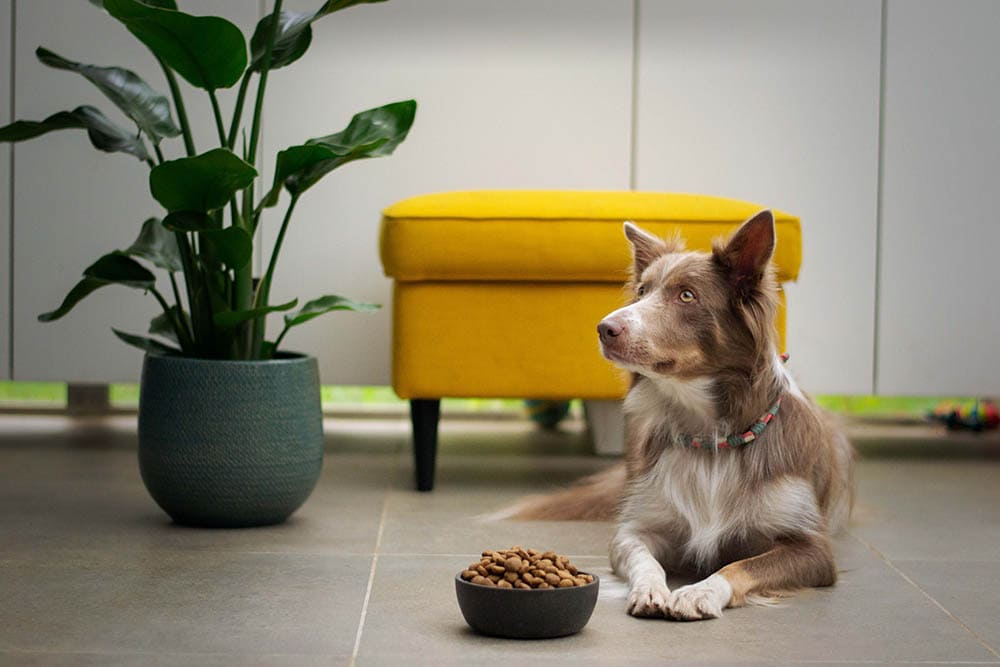VET APPROVED

The information is current and up-to-date in accordance with the latest veterinarian research.
Learn more »Click to Skip Ahead
Responsible rabbit owners know that feeding your rabbit a wide variety of vegetables can help them live longer, healthier lives. But with their sensitive digestive systems, figuring out what to feed your pet rabbit can be a real challenge!
In short, yes, your rabbit can eat zucchini. After covering zucchini’s nutrition facts and health benefits, we’ll be giving you helpful guidelines for how to feed this vegetable to your rabbit and how much they should eat.

Yes! Rabbits Can Eat Zucchini
It is true! Zucchini squash, also known as courgette, is safe for rabbits to eat. It is a good supplement to a rabbit’s usual diet of fresh hay, green leafy vegetables, and clean water. Use zucchini to provide variety as well as extra vitamins and minerals to your rabbit’s diet.
Zucchini Facts: Nutrition, History, and Origins
As part of the squash family, zucchini is related to pumpkins and butternut squash. It is considered a fruit by botanists, but more often is used as a vegetable in cooking. Its name comes from the Italian “zucca”, meaning pumpkin or squash.
Zucchini’s nutritional profile resembles a fruit more than a vegetable. It is somewhat high in sugar, and rich in vitamin C. Its calorie composition is 52% carbohydrates, 30% protein, and 18% fats. However, the fiber content is less than optimal for a rabbit, so it can only be used as a supplement to their mostly hay diet.
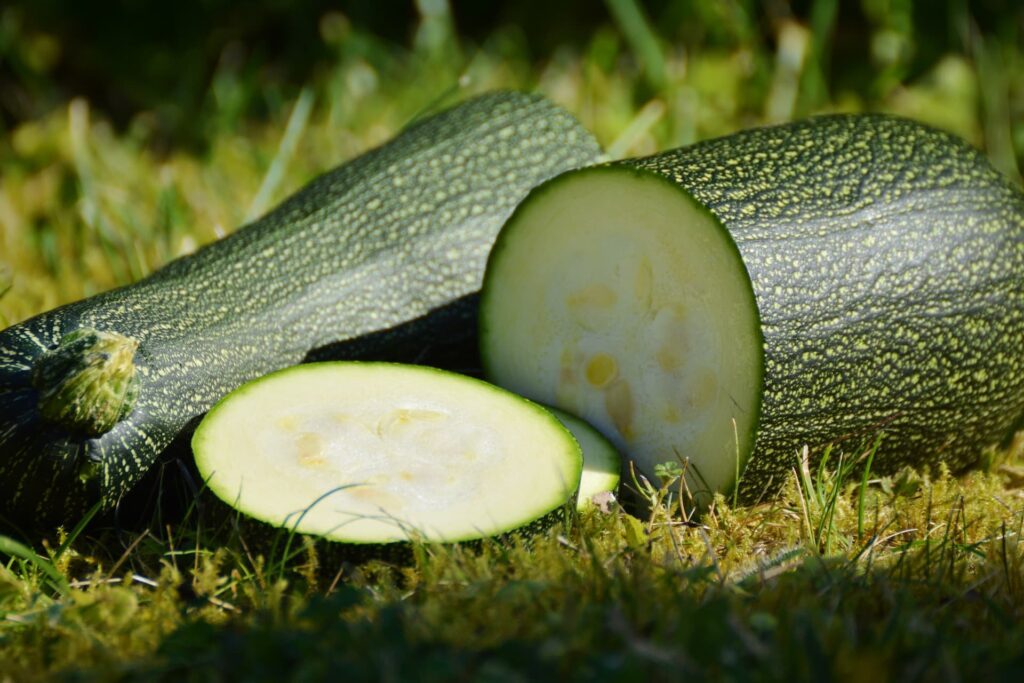
Health Benefits of Zucchini for Rabbits
Even though it is not particularly rich in any one vitamin or mineral, zucchini has a small amount of a wide variety of essential nutrients. Added to your rabbit’s diet, it can help to provide variety and balance the nutrient intake from hay. Plus, rabbits always appreciate having a wider variety of foods to eat!
Can Zucchini Be Bad for Rabbits?
While most rabbits digest zucchini well, some will find that it bothers their stomach. Because zucchini is relatively high in sugar, it can upset your rabbit’s digestive system by disrupting their gut bacteria. Diarrhea is a common sign of this; if your rabbit’s poops get runny, remove zucchini from their diet.
How to Feed Zucchini to Your Rabbits
If you’re introducing zucchini to your rabbit for the first time, it’s important to do so slowly. Start with only a few small bites per day, and monitor your rabbit closely. If they seem bloated, lethargic, uncomfortable or have changes in toilet habits, it’s best to stop feeding them zucchini right away.
For rabbits that do enjoy zucchini and can digest it well, you can feed it to them raw in any shape. You can offer it shredded or even try zucchini “pasta” by peeling off thin layers. This has the side benefit of slowing down your rabbit’s eating!
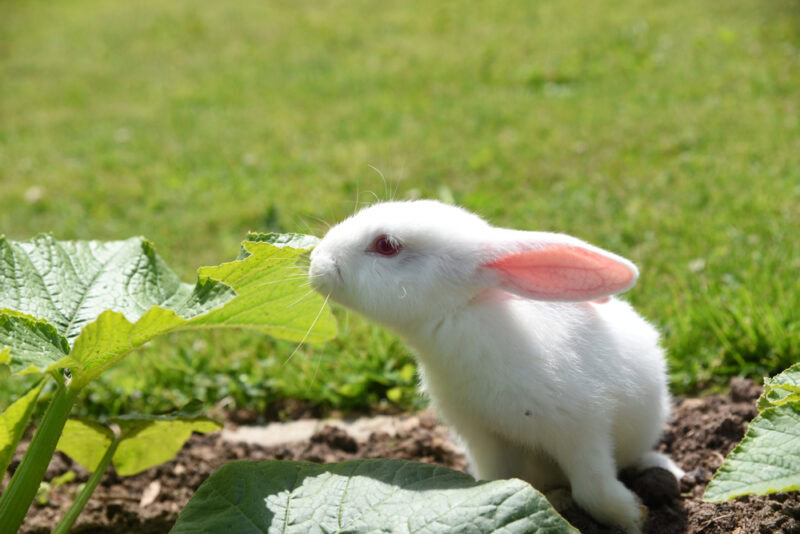
How Much Zucchini Should I Feed My Rabbit?
If your rabbit likes zucchini, you can feed them a couple of slices in addition to their usual diet of hay. Because zucchini is very watery and a little sweet, it’s important not to overfeed your rabbit. It’s wise to always err on the side of underfeeding for everything besides hay. As a general rule, your rabbit’s diet should be 80-85% hay, 10% dark leafy greens, 5% pellets, and 5% fruits. Remember that zucchini is considered a fruit so please do not overdo it.
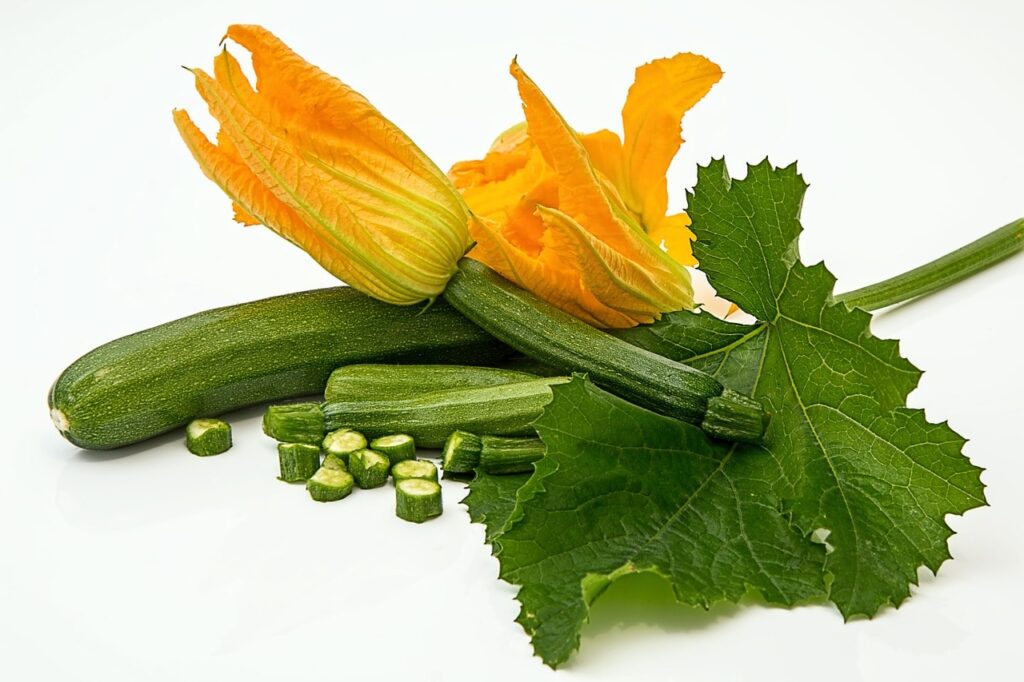
Types of Zucchini to Feed Your Rabbit
Want to know why zucchini is a wonderful plant to feed your rabbit? Because every part of it is edible for bunnies! The skin, leaves, flesh, flowers, and seeds are all safe for your rabbit to eat, making it a versatile vegetable indeed.
You should always choose fresh, organic vegetables for your rabbit. Avoid anything that’s been treated with pesticides or waxes, as these can easily upset your rabbit’s sensitive digestive system or worse. It’s best to also avoid zucchini that has been frozen or cooked, as both will render the vegetable unable to be digested by your rabbit.

Final Thoughts
Zucchini is an excellent addition to your rabbit’s diet and is completely safe for them to eat. Its high sugar content may disturb your bunnies’ gut microbiome, so introduce it to their diet slowly and never offer too much, it is just a treat for them. Try planting some in your garden this year to share with your bunnies!
Related Reads:
